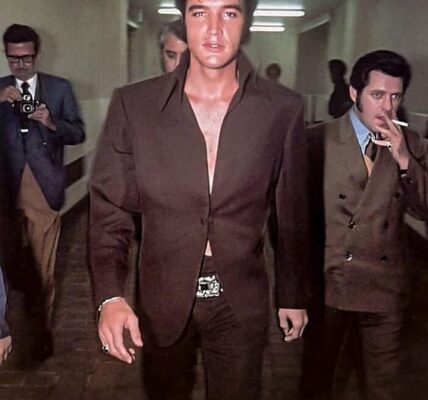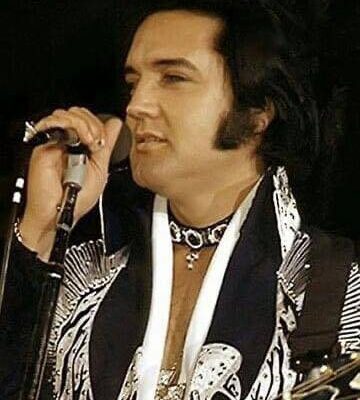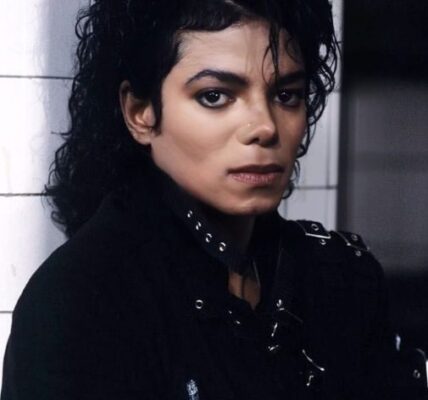Old McDonald’s: Historical Photos, Vintage Advertisements and the Original Menus, 1950s-1980s
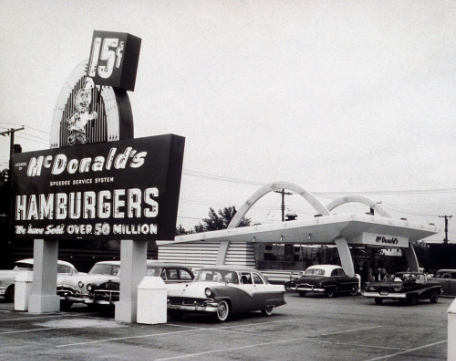
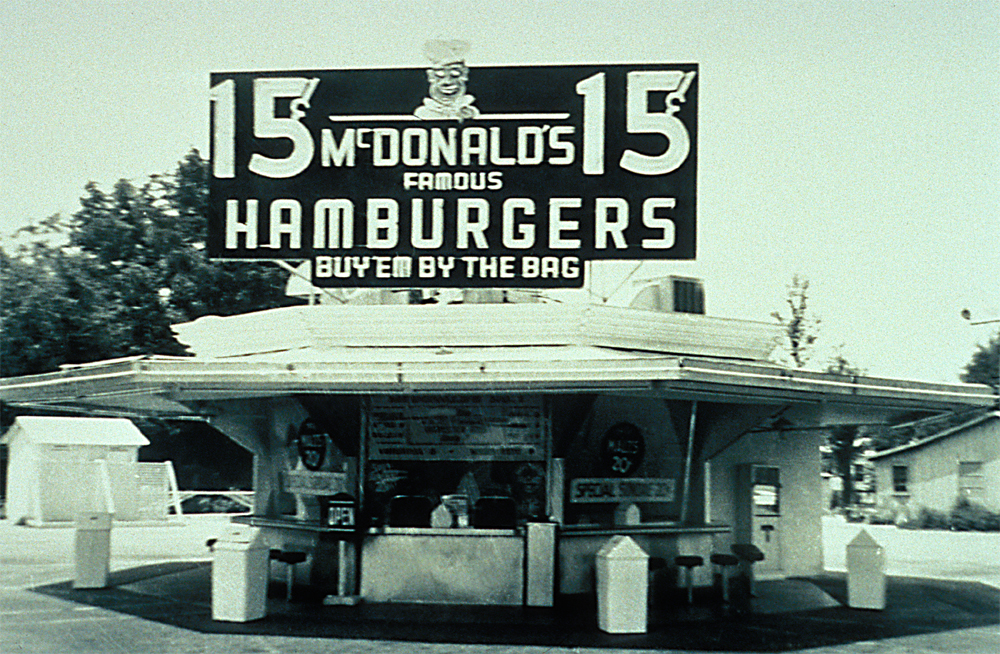
McDonald Brother’s store in San Bernadino, California, 1953.
When McDonald’s was first founded in the 1940s by brothers Dick and Mac McDonald, it was actually a barbecue-centric restaurant, serving items like ribs and barbecued pork sandwiches.
But once Ray Kroc took the restaurant over, he simplified the menu, streamlined the operation, and conquered the world.
Siblings Richard and Maurice McDonald opened the first McDonald’s at 1398 North E Street at West 14th Street in San Bernardino, California, on May 15, 1940.
The brothers introduced the “Speedee Service System” in 1948, putting into expanded use the principles of the modern fast-food restaurant that their predecessor White Castle had put into practice more than two decades earlier.
In April 1952, the brothers decided that they needed an entirely new building to achieve two goals: further efficiency improvements and a more eye-catching appearance. They collected recommendations for an architect and interviewed at least four, choosing Stanley Clark Meston.
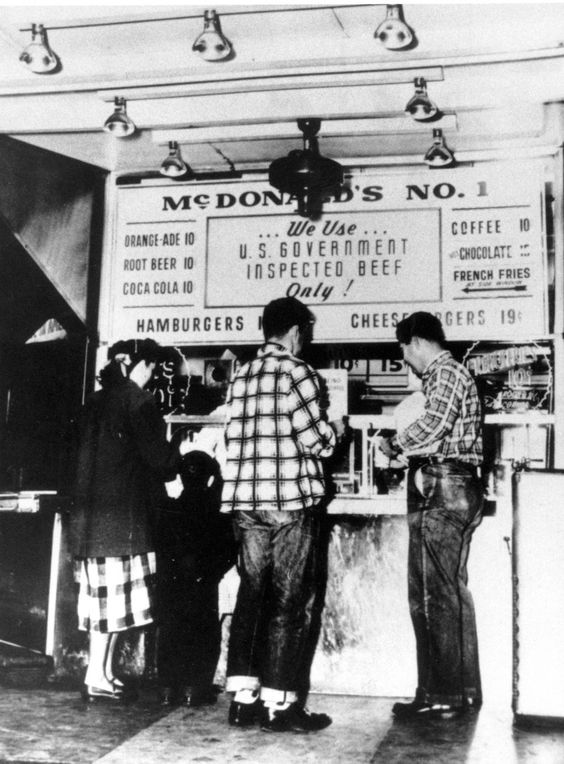
First McDonald’s burger stand, San Bernardino, California, 1940.
The new design achieved a great deal of notice for its gleaming surfaces of red and white ceramic tile, stainless steel, brightly colored sheet metal and glass; pulsing red, white, yellow and green neon; and two 25-foot yellow sheet-metal arches trimmed in neon, which they named the “Golden Arches” at the design stage.
A third, smaller arch sign at the roadside depicted a pudgy character in a chef’s hat known as Speedee striding across the top, trimmed in animated neon.
The brothers implemented several techniques to encourage customers to eat quickly and not to linger in the restaurant, such as reduced heating in the dining area, fixed and angled seating to place customers directly over their food, distance between seats to reduce socialization, and cone-shaped cups, which would force customers to hold their drinks while eating.
In 1954, Ray Kroc, a seller of Prince Castle brand Multimixer milkshake machines, learned that the McDonald brothers were using eight of his machines at their San Bernardino restaurant.
His curiosity was piqued, and he visited the restaurant with his friend Charles Lewis, who had suggested to Kroc several improvements to the McDonald’s burger recipe. The McDonald brothers operated six franchise locations.
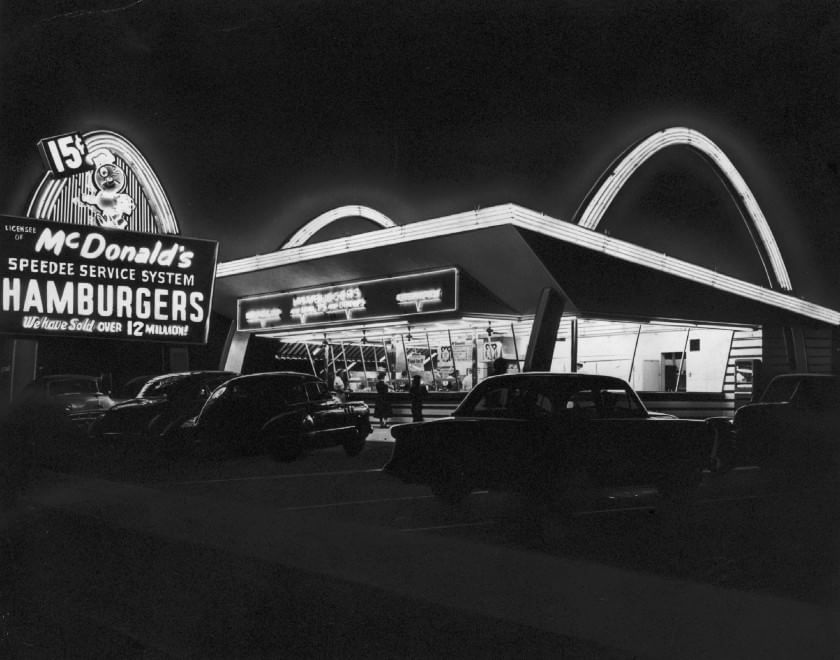
The first McDonald’s fast food restaurant with its neon arches illuminated at night, Des Plaines, Illinois, 1955.
Believing that the McDonald’s formula was a ticket to success, Kroc suggested that the brothers franchise their restaurants throughout the United States.
The brothers were skeptical that the self-service approach could succeed in colder, rainier climates; furthermore, their thriving business in San Bernardino, and franchises already operating or planned, made them reluctant to risk a national venture.
Kroc offered to assume the major responsibility for establishing the new franchises elsewhere. He returned to his home outside of Chicago with rights to set up McDonald’s restaurants throughout the country, except in a handful of territories in California and Arizona already licensed by the McDonald brothers. The brothers were to receive 0.5% of gross sales.
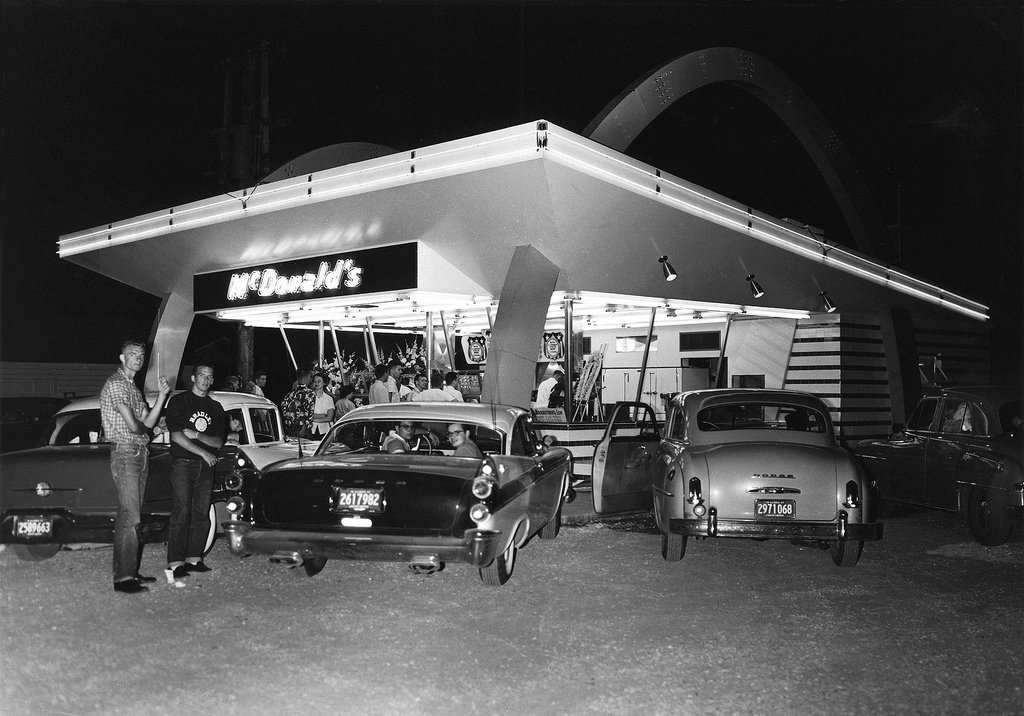
McDonald’s in the 1950s.
By 1960, McDonald’s restaurants were grossing $56 million annually. The growth in U.S. automobile use that came with suburbanization and the interstate highway system contributed heavily to McDonald’s success.
In 1961, Kroc’s conflict over the vision of the company with the founding brothers had escalated, and he asked them how much money they wanted to leave their business to him entirely.
The brothers asked for $2.7 million ($23.4 million in 2021 dollars), which Kroc did not have. Harry J. Sonneborn was able to raise the money for him, and Kroc bought the founding brothers’ interests in the company.
This purchase laid the groundwork for positioning the company for an IPO and making McDonald’s the top fast-food chain in the country.
The exact process by which the company was sold is not known; it is depicted as a hostile takeover by Kroc in the 2016 biographical film The Founder, but that portrayal has been disputed, and interviews from the time suggest a more voluntary transition.
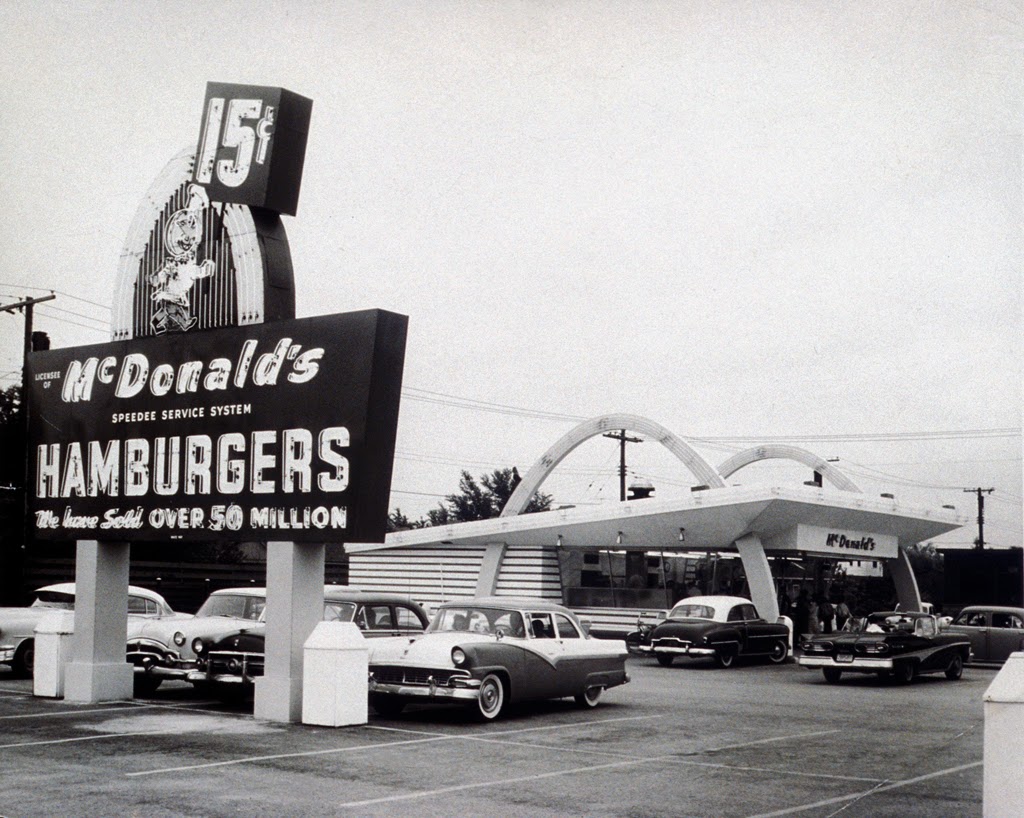
McDonald’s, ca. 1950s.
The original menu, which was introduced in 1940 by the founders, brothers Richard and Maurice McDonald, included hamburgers, cheeseburgers, potato chips, coffee, and Coca-Cola.
The burgers were made with 100% beef, freshly ground at the restaurant, and cooked quickly on a griddle. The buns were also toasted on the griddle before serving.
The McDonald’s menu began to expand in the 1960s with the introduction of new items like the Filet-O-Fish sandwich and the Big Mac, which quickly became popular.
In the 1970s and 1980s, McDonald’s added more items to its menu, including chicken nuggets, the Egg McMuffin breakfast sandwich, and salads.
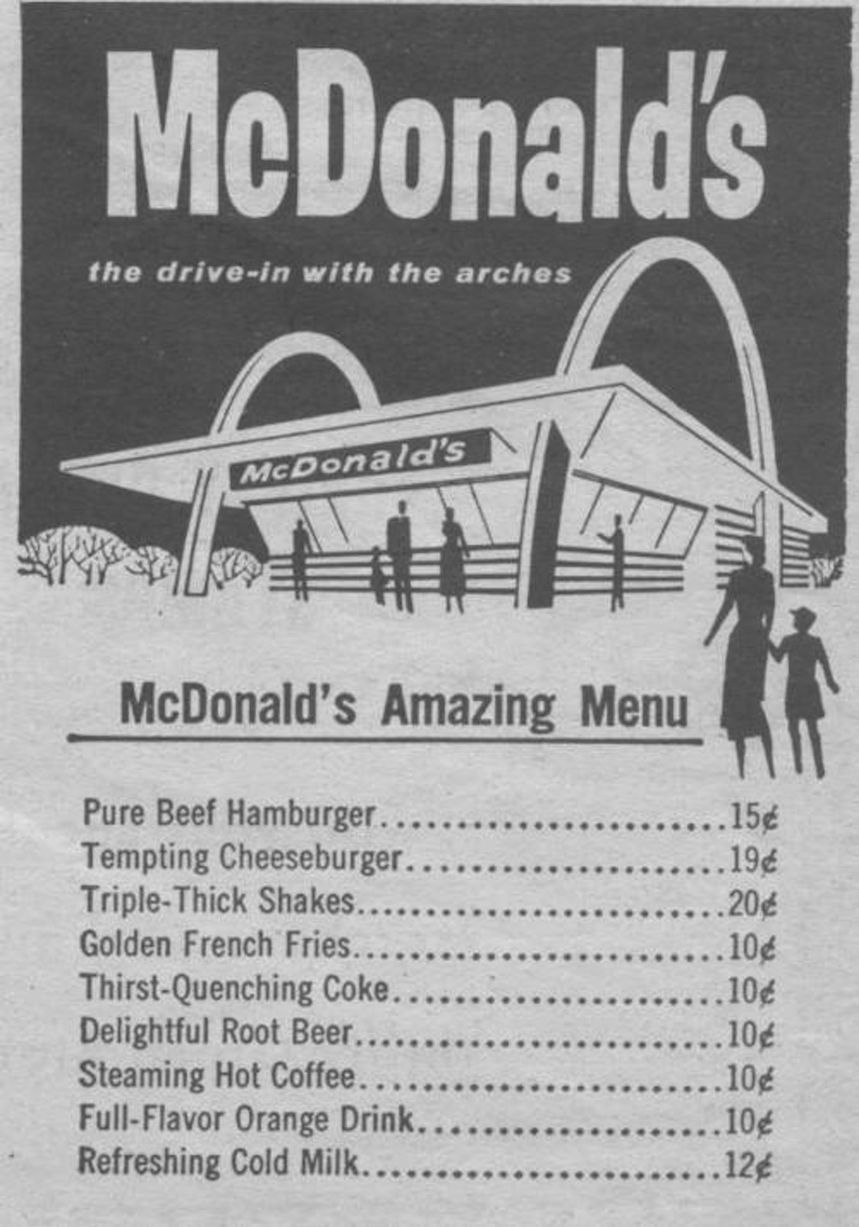
Early menus continued to offer just a handful of items, which proved hugely popular with customers.
In the early days, from the 1940s to the 1950s, McDonald’s advertising was focused on promoting the speed and efficiency of its service.
Advertisements featured slogans such as “Service with Speed” and “Speedee Service” to emphasize the quickness of the food delivery.
Advertisements during this period often featured cartoonish characters such as Speedee, a winking chef, who represented the brand.
In the 1960s, McDonald’s began to shift its advertising focus towards the quality of its food. The company introduced the Big Mac and the Filet-O-Fish during this time and started promoting the use of fresh, high-quality ingredients.
Advertisements during this period often featured jingles, such as the famous “Two all-beef patties, special sauce, lettuce, cheese, pickles, onions on a sesame seed bun” jingle for the Big Mac.

A poster advertising the opening of the first store.
In the 1970s, McDonald’s advertising became more sophisticated and focused on the emotional appeal of the brand.
The company launched its “You Deserve a Break Today” campaign in 1971, which encouraged people to take a break and enjoy McDonald’s food.
This campaign was followed by other popular campaigns such as “You Deserve a Break Today,” “McDonald’s is Your Kind of Place,” and “Nobody Can Do It Like McDonald’s.”
The ads during this period often featured families and friends enjoying McDonald’s food together, emphasizing the brand’s role as a gathering place for the community.
.jpg)
McDonald’s advertisements in the 1960s.
.jpg)
McDonald’s advertisements in the 1960s.
.jpg)
McDonald’s advertisements in the 1960s.
.jpg)
McDonald’s advertisements in the 1960s.
.jpg)
McDonald’s advertisements in the 1960s.
.jpg)
McDonald’s advertisements in the 1960s.

Ray Kroc outside the Des Plaines, Illinois restaurant, ca. 1950s.
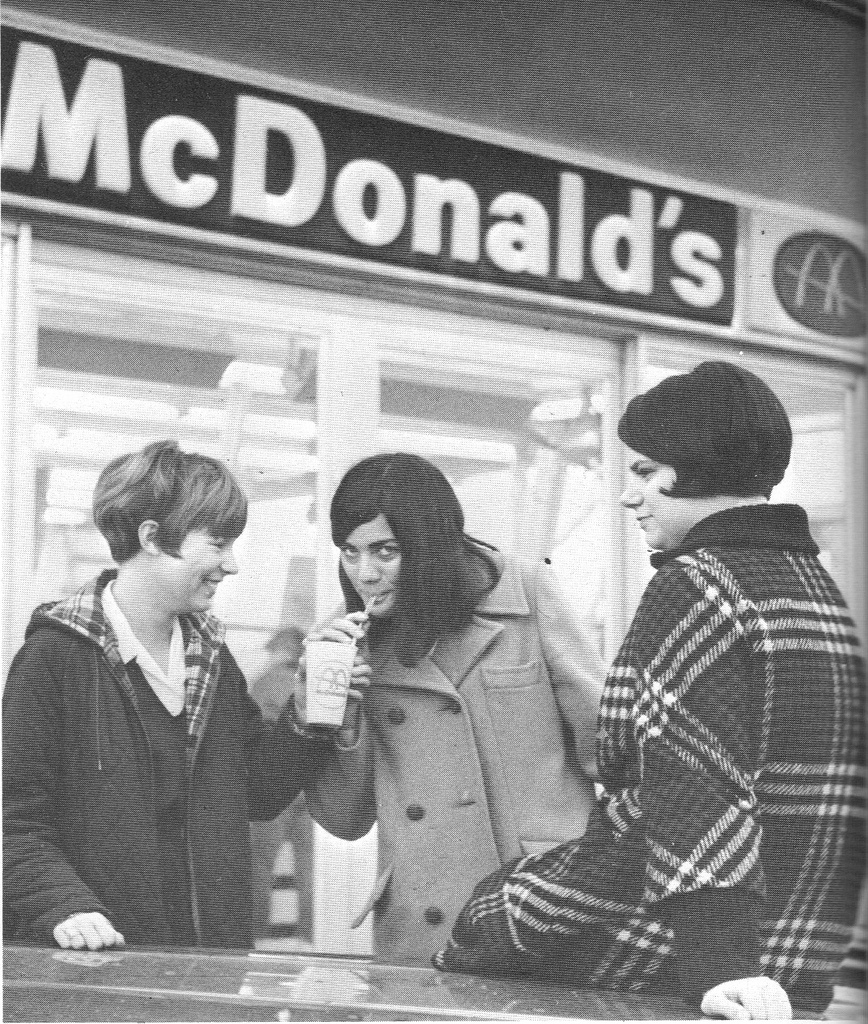
McDonald’s in Troy, New York, 1967.

McDonald’s in Tacoma, WA, 1967.
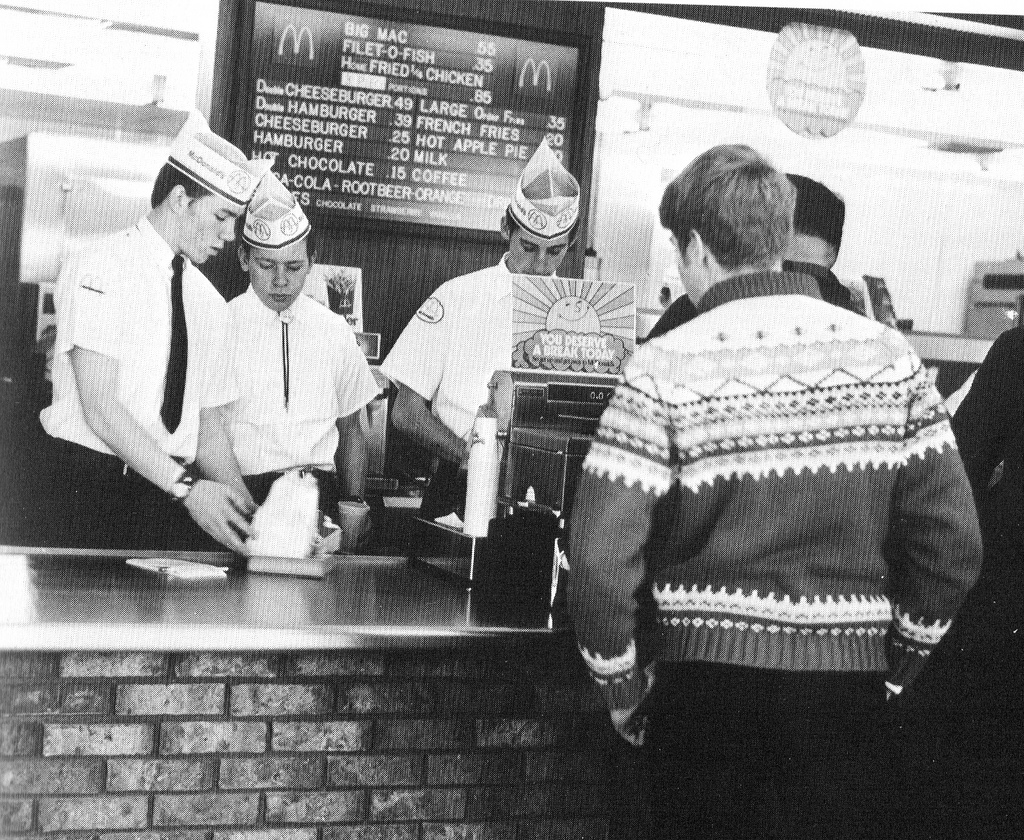
McDonald’s crew, 1969.
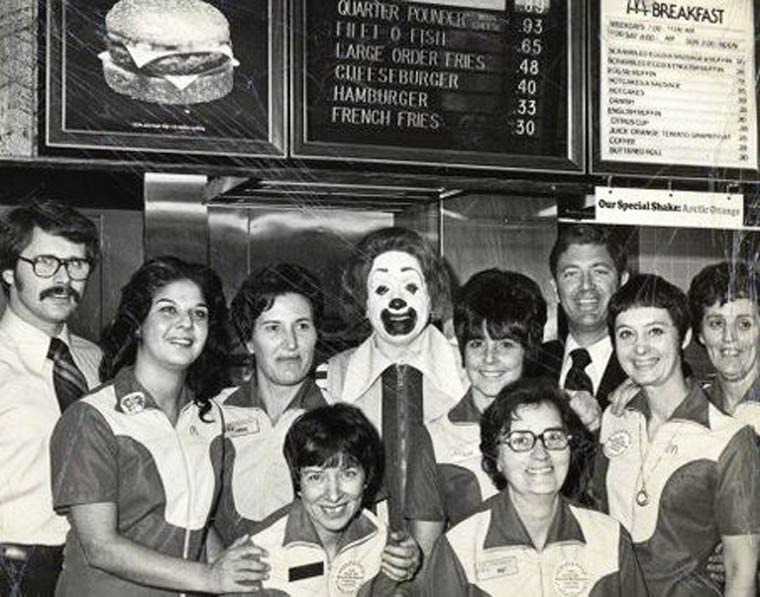
McDonald’s crew in the early 1970s.
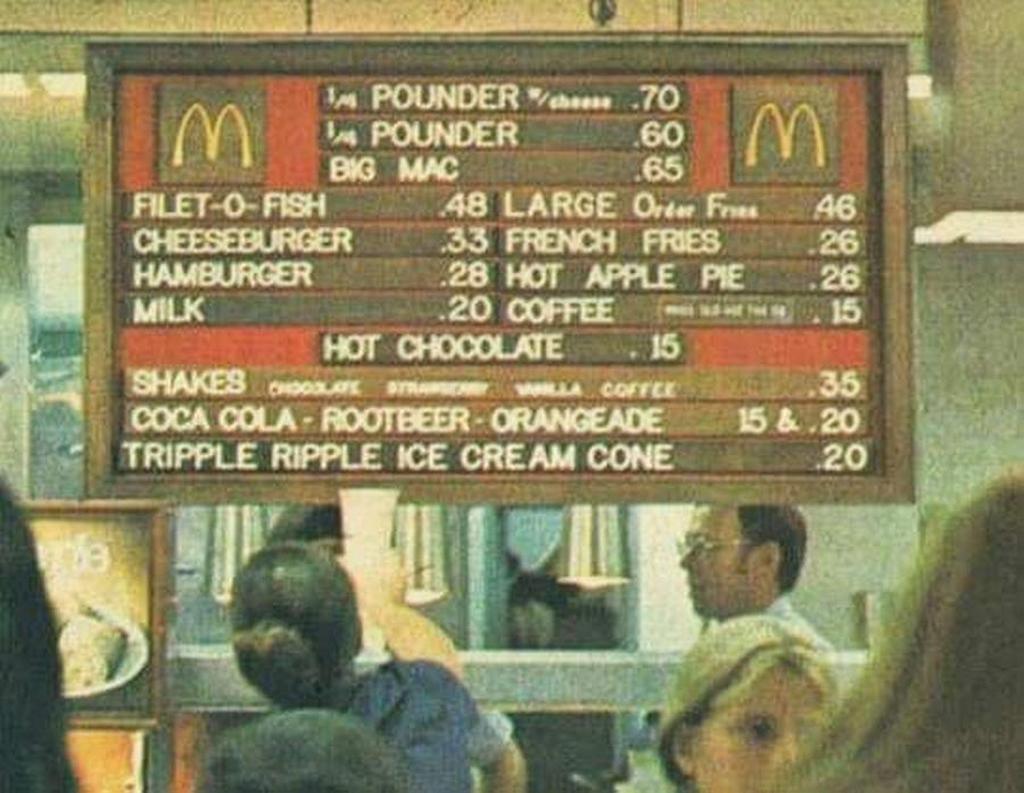
McDonald’s menu during 1973.
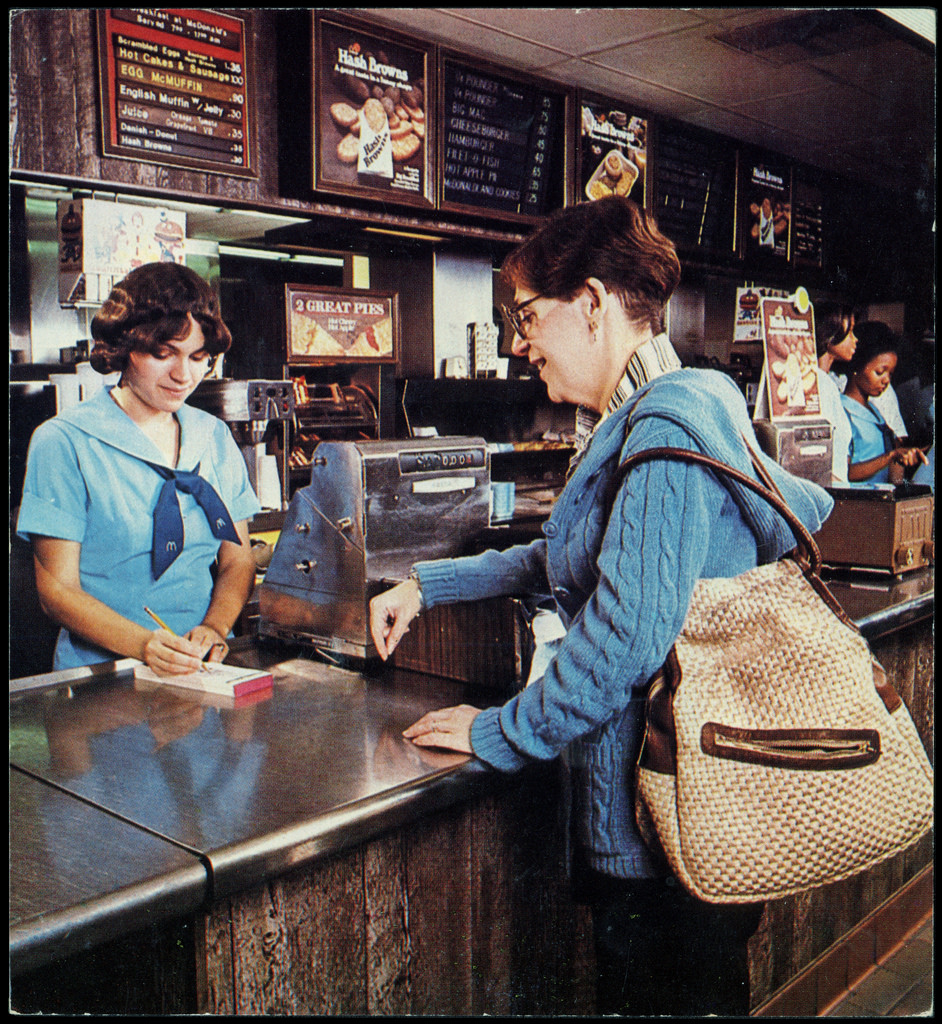
McDonald’s store, 1978.





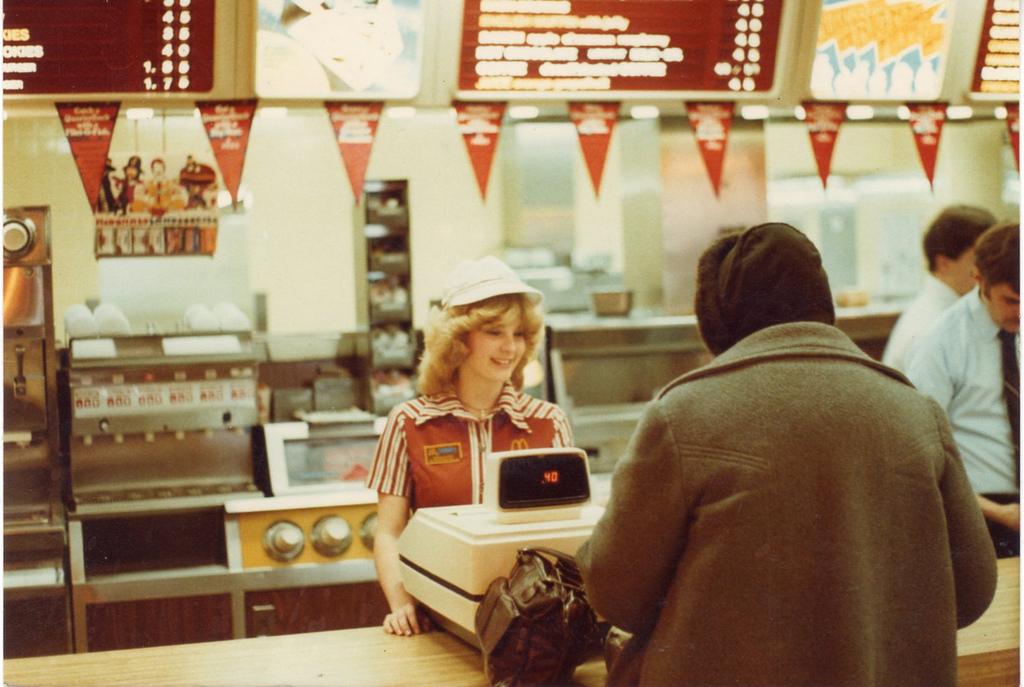
At a McDonald’s store in the 1980s.
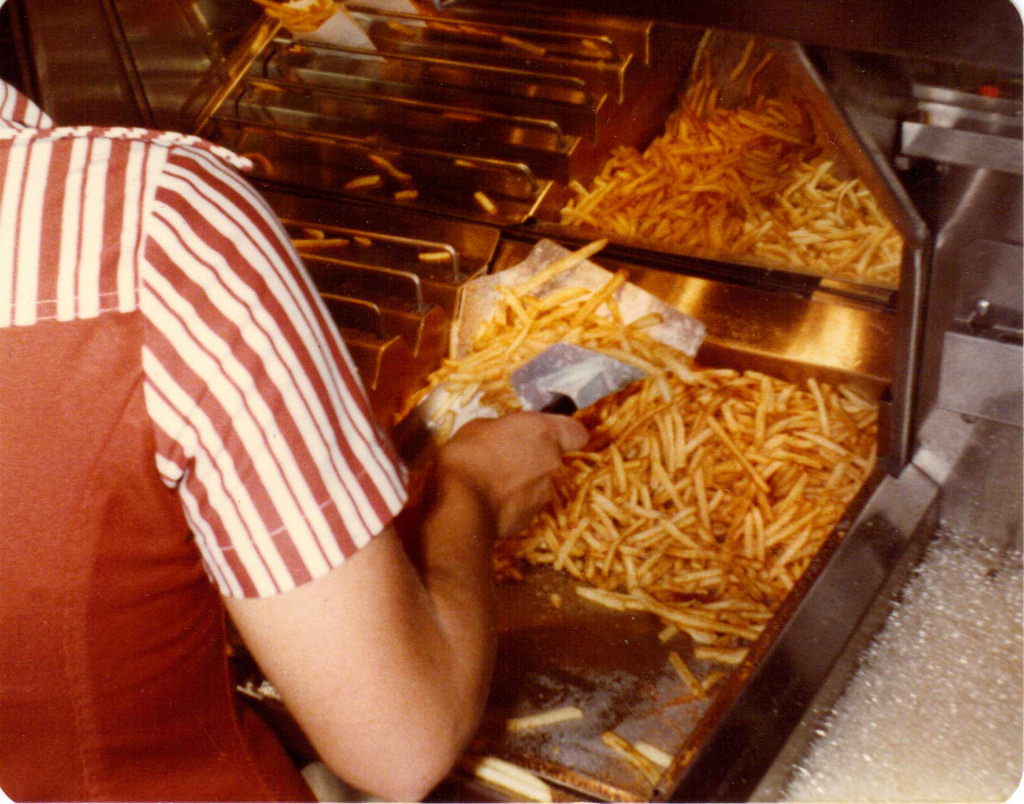
McDonald’s golden French fries, Caldwell, Idaho, 1980.
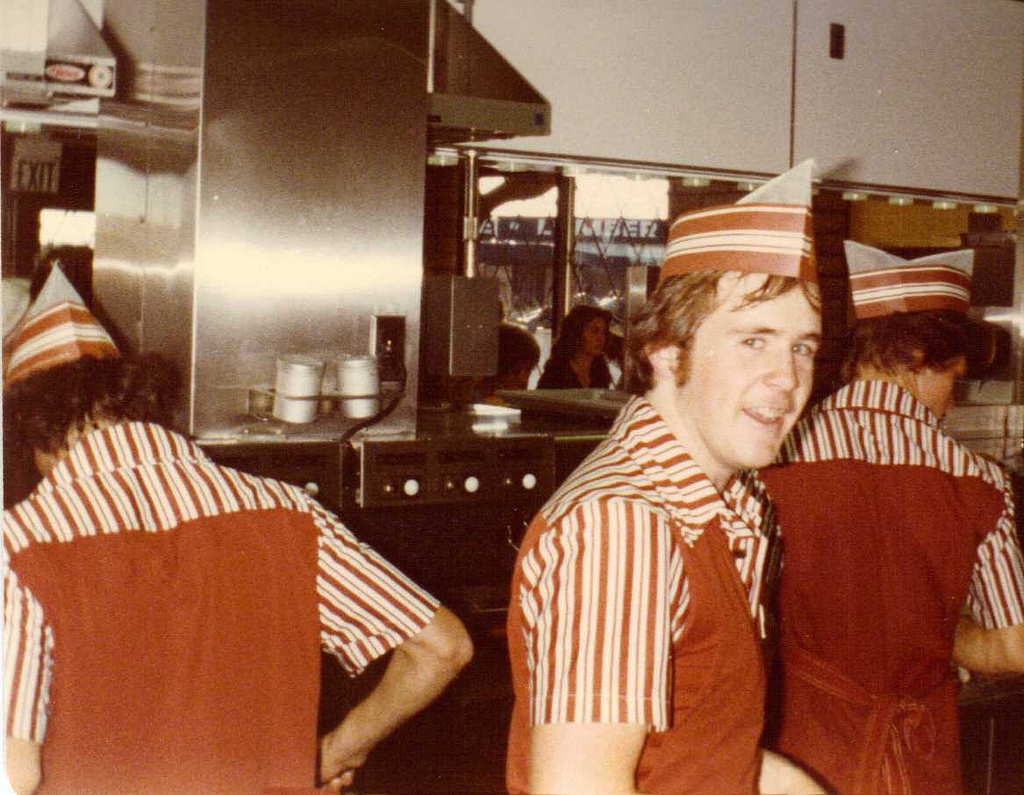
McDonald’s grill crew, Caldwell, Idaho, 1980.
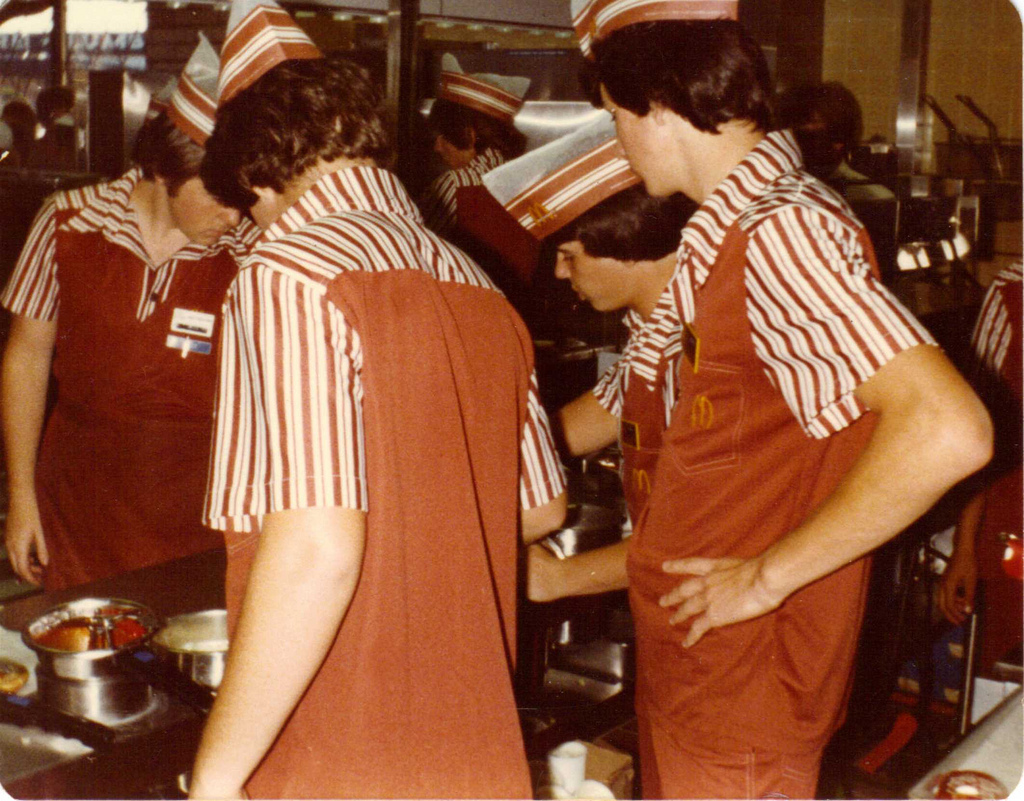
McDonald’s grill crew, Caldwell, Idaho, 1980.
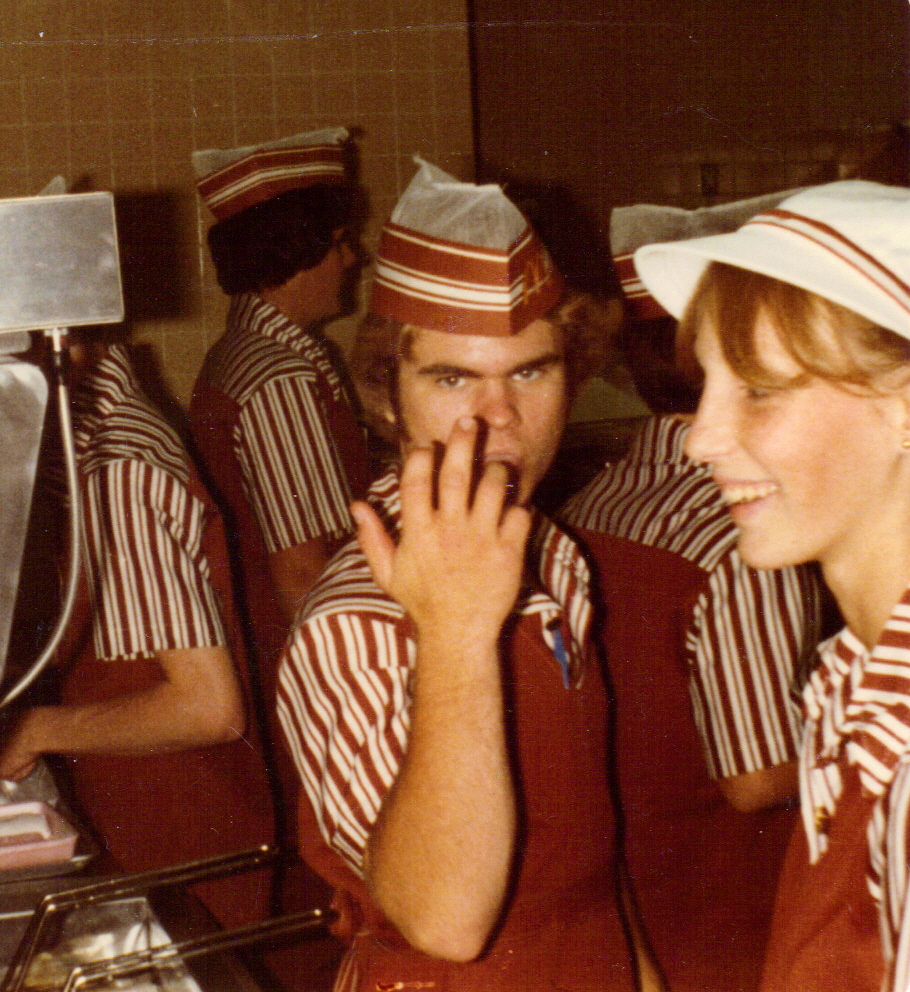
McDonald’s uniforms in Caldwell, Idaho, 1981.
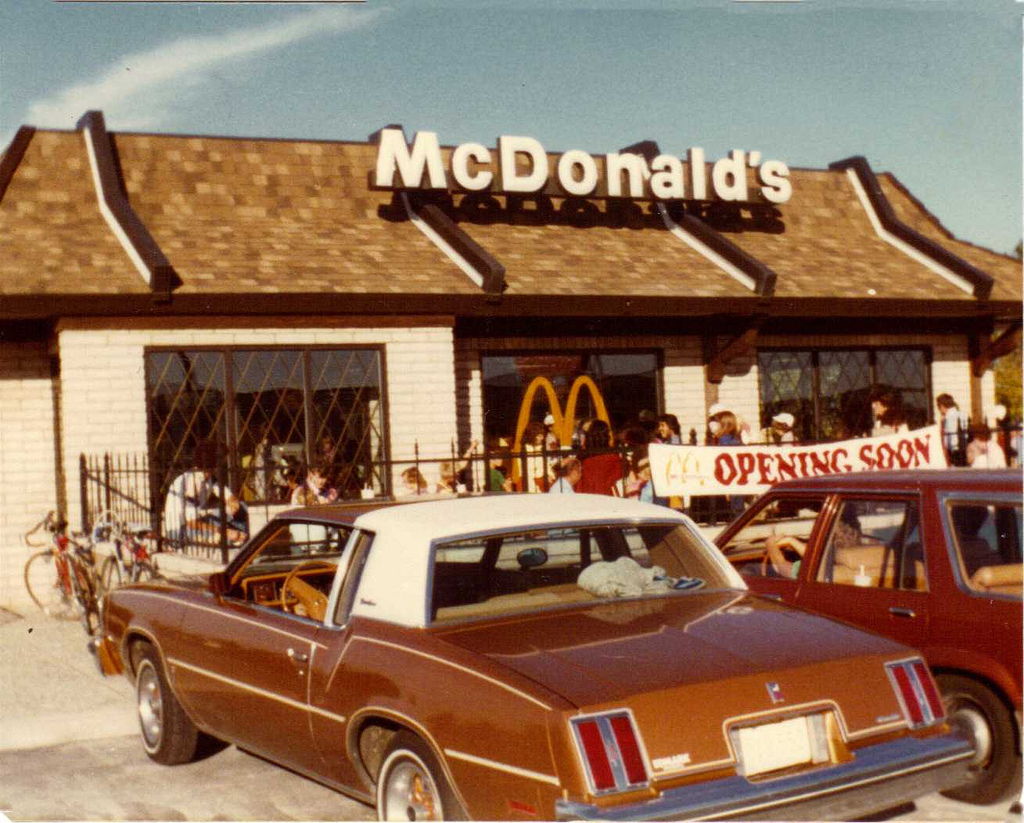
New McDonald’s store in Caldwell, Idaho, Sept. 1980.
(Photo credit: McDonald’s / Wikimeda Commons / Pinterest / Library of Congress / Flickr).
